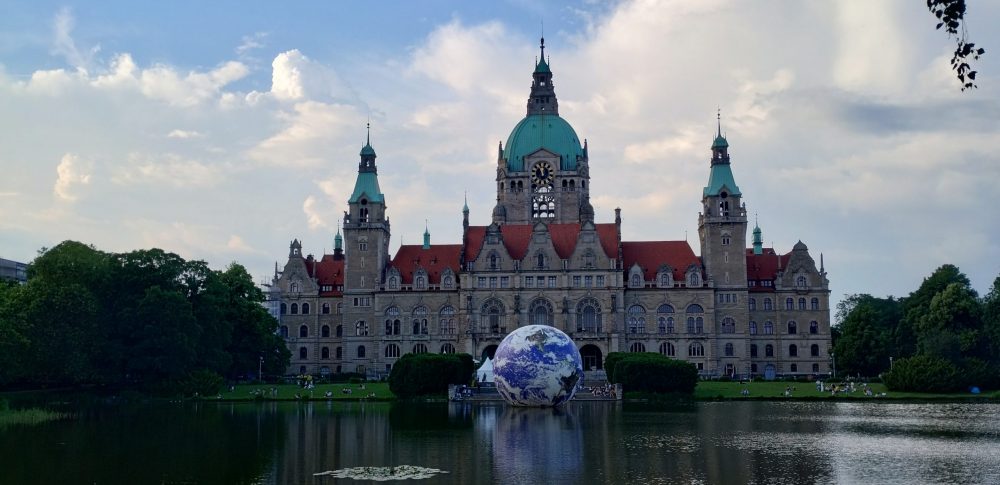When it comes to speaking and writing about the past, German and English are different from one another, so be careful when translating. Look at the little dialogue below.
Dialogue:
A: Was habt ihr am Wochenende gemacht?
B: Ich war in der Stadt mit einer Freundin. Wir waren einkaufen und dann im Kino.
C: Ich habe Freunde besucht.
D: Ich war einkaufen.
E: Ich habe nichts gemacht. Ich war zuhause und habe gelesen.
F: Wir sind in den Harz gefahren und sind dort gewandert.
G: Ich habe mit Freunden gekocht.
Wir haben lange zusammen gesessen und uns unterhalten.
A: Was habt ihr gekocht?
G: Wir haben einen Salat gemacht und Pizza gebacken.
*
Language observation
In the dialogue above you find only a small selection of verbs. Go to Essential Verbs (German) Quiz and check how many more you know. Go to the second post How to talk about the past – additional practice. Create a table and sort verbs according to
a) which verbs take a form of SEIN, which a form of BE?
b) which verbs’ participles end on -en, which ones on -t, which ones are irregular?
*
What you need to know for speaking about things that happened or were done in the past (with links to Quizlet flashcard sets)
When we speak about things past in German, we use what grammatically is called the perfect form (Perfekt). In writing it is different: there we (mostly) use what German grammars call ‘Imperfekt’ or ‘Präteritum’, but could perhaps also be described as ‘simple past’; not in the sense that the forms are simple in the way the English simple past is when all we need to do is add an -ed to the basic verb form. More like the English irregular past tense forms, like go – went, where the basic verb changes its form internally to create the past tense.
When we speak about ‘things past’ in German, we mostly use a form of HABEN plus the participle form. There is a group of verbs that combines with a form of SEIN. Look at examples in the second post How to talk about the past – additional practice and try to find out what kind of verbs take a form of SEIN plus participle.
Some verbs are used in their simple past forms (‘Imperfekt’) when speaking about past time.There is no auxiliary + participle structure, but an internal change of the respective verb. Mainly this is with HABEN and SEIN when they are used as main verbs, and with modal auxiliaries (see below). Take a look at the flashcard sets for HABEN (have) and SEIN. In the dialogue above, you find forms of SEIN in the past. Practice the different forms using the flashcard set below.
Past tense forms of SEIN
For building the more complex past form AUX plus partiple, we need the first forms (so-called present or ‘Präsens’ forms) of SEIN and HABEN. Practice them with the flashcards below.
Conjugated forms of SEIN and HABEN in their first forms (Präsens):
- Single verbs conjugated – SEIN Flashcards |
- Single verbs conjugated – HABEN (statements and questions) Flashcards |
SEIN and HABEN in their ‘simple present’ forms combine with the past participle of the respective main verbs.
Participles of main verbs
- Participles of common verbs Flashcards | Quizlet
- Past tense (Perfekt) verbs with SEIN plus participle (1) Flashcards | Quizlet
- ‘Perfekt’ sentences – name the participle and its auxiliary SEIN or HABEN
Verbs that are more commonly used in their ‘simple past’ forms (as mentioned above) when spoken*
Look at the following examples.
- Ich fand den Glühwein sehr süß.
- Sie war mit ihren Kindern im Kino.
- Wir sollten den Bericht gestern fertig machen.
- Er musste gestern zum Arzt.
- Sie wollten einkaufen gehen.
- Wir könnten ins Kino gehen.
- Wir konnten keine Tickets bekommen.
So also learn the ‘simple past’ forms of modal verbs: können, müssen, sollen, wollen and those verbs that are commonly or preferably used in their ‘simple past’ forms like finden in the sense of what you think, feel or believe about something.
Flashcards: Past tense forms of German modal verbs Flashcards | Quizlet; The verb FINDEN Flashcards | Quizlet
*As already mentioned above, what I prefer to call ‘simple past tense forms’ is found under the Latin derived terms ‘Präteritum‘ or ‘Imperfekt‘ in German grammars.)
